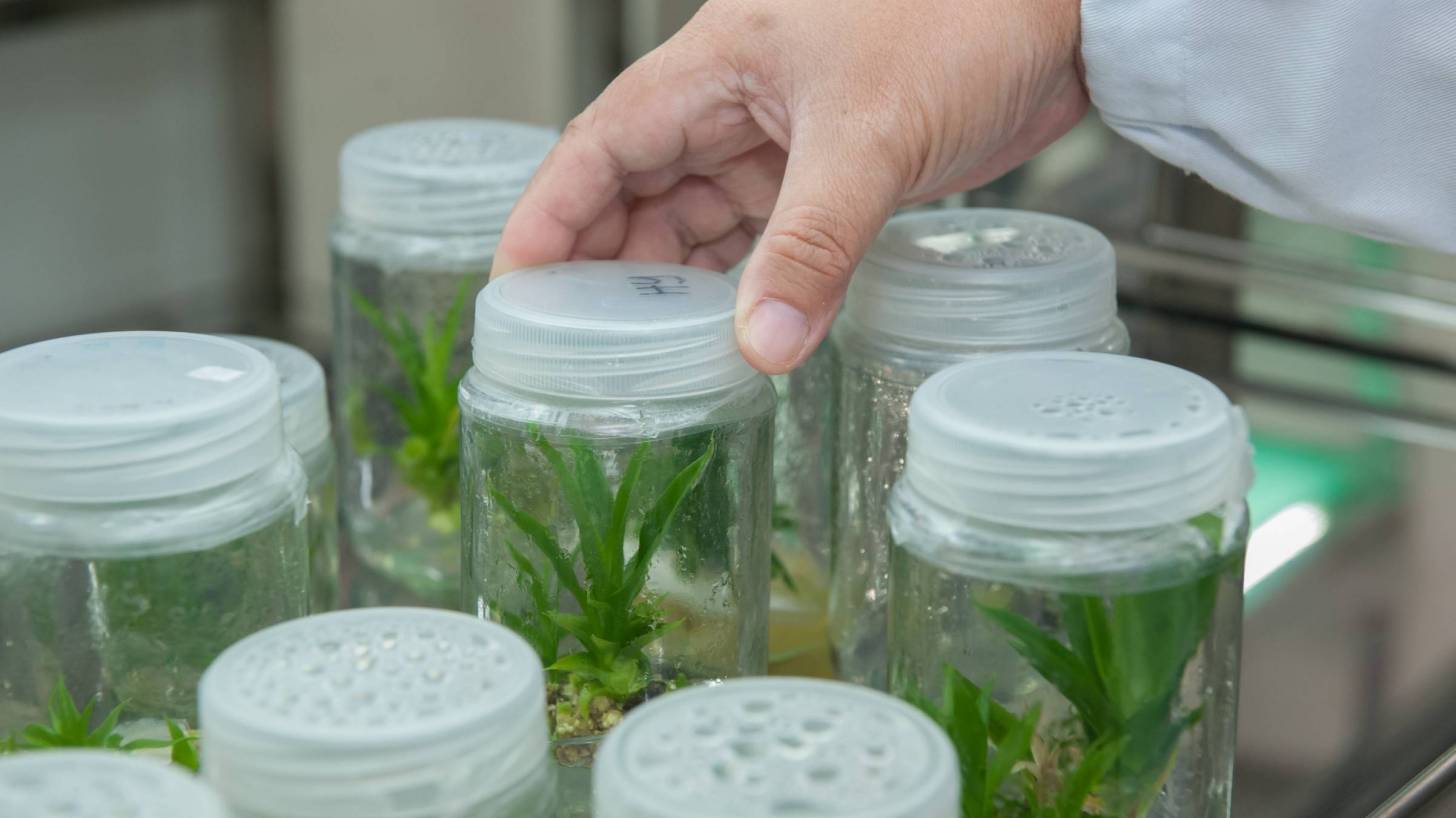A Plant-Based HPV Vaccine?

In a recently published paper, researchers from the Arizona State University (ASU) shed light on a potential plant-based vaccine that stimulates a strong, broadly protective, immune response against the human papilloma virus (HPV).
This study describes a potential HPV vaccine while also assessing the validity of plant-based systems for vaccine development.
The current approach to the Gardasil 9 vaccine from Merck is to produce strain-specific virus-like particles (or VLPs), which are composed of the virus’ capsid protein.
But, none of it is infection-causing DNA, said these researchers.
The immune system still recognizes this protective shell of the virus and stimulates a response, but the vaccine does not contain any infectious agents.
Each of these virus-like particles, however, only protects against one strain of HPV.
Research shows that in addition to causing cervical cancer in women, certain HPV strains have been linked to head and neck cancers in men.
“If you are going to get protected against one of those stains, you won’t be protected against others. The way that the Gardasil 9 vaccine has been trying to get around this is by essentially making a ton of VLPs and mixing them together into the same vaccine,” said Andy Diamos, a postdoctoral researcher at the Biodesign Center for Immunotherapy, Vaccines, and Virotherapy, in a press release.
So these ASU researchers set out to find a broadly protective target.
According to the Centers for Disease Control and Prevention (CDC), about 79 million Americans are currently infected with HPV. And, about 14 million people become newly infected each year.
Currently, the highly specific L1 capsid protein is utilized in vaccines, but another protein labeled L2 has not been explored in as much detail. The L2 protein is conserved across different strains of HPV, but it has been known to produce a poor immune response.
If researchers were able to find a way to boost the immune response to this capsid protein, L2 could be used to produce broad-based protection against multiple variants of HPV.
“If you could convince your body’s immune system to care about this protein, then it could protect people against lots of strains at once.”
“That was the idea behind our vaccine — to take this protein that is highly protective and find a way to make it highly immunogenic,” Diamos added.
The researchers utilized two different vaccine strategies.
First, they made an HPV VLP by attaching the L2 protein to a pre-existing hepatitis B virus-like particle, and then they made a recombinant immune complex by fusing the L2 protein to an antibody.
Both of these approaches, when used in vaccines administered to mice, produced a strong immune response, but when delivered together, the improvement was impressive.
“What we found is that either of these two platforms (with this L2 antigen) can produce pretty strong antibody responses, but when we administer them together, we get a synergy that is greater than the additive effects,” said Hugh Mason, an associate professor in the School of Life Sciences.
The fact that these recombinant protein expression systems were produced in plants sidesteps some of the traditional challenges posed for other vaccines.
“We believe plants are a good model for expressing recombinant proteins because they are very easy to culture and thanks to developments in the last few years, we have been able to attain high levels of expression,” Mason said.
“Using viral vectors, we deliver them into the plant system, they produce multiple copies of the gene that enhances the level of protein expression, and moreover, we can extract and purify the protein from plants, and purify it in a relatively straightforward way.”
“Ultimately, we think that plants can be a cheaper way to produce many of the recombinant proteins that are produced in mammalian culture systems, which are very expensive and require very expensive media and facilities to grow the cells.”
Although plant-based vaccines have a long way to go before they are approved and hit the market, they are associated with a lower cost in addition to a lower risk of external pathogens.
“The general idea is that when people make complex proteins, they use mammalian systems, and that’s problematic because they have to grow these mammalian cells in sterile bioreactors, which doesn’t scale up very well,” Diamos said.
“Compare that to growing plants — you water them, you give them light and they grow. Plants also don’t harbor animal pathogens.”
Eventually, these ASU researchers would like to test the vaccine on humans or nonhuman primates, to further establish its safety and efficacy.
Nancy McClung, Ph.D., RN, epidemic intelligence service officer at the CDC said in a press release, “Almost all sexually active individuals will get HPV at some point in their lifetime, and most HPV infections go away on their own without any treatment.“
“If an HPV infection does not go away, cells change over time, and they can develop into cancer.”
Dr. McClung said clinicians should continue to strongly recommend the HPV vaccine for all preteens at age 11 or 12, and effectively answer parents’ common questions about the vaccine.
The Gardasil-9 vaccine protects against 9 of the most cancer-associated strains of HPV, though there are over 100 strains of HPV with possible adverse effects.
Gardasil 9 is available at select clinics and pharmacies in the USA.
Our Trust Standards: Medical Advisory Committee


























